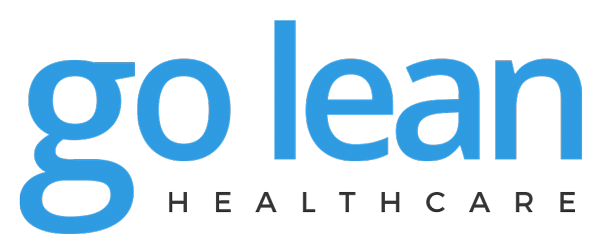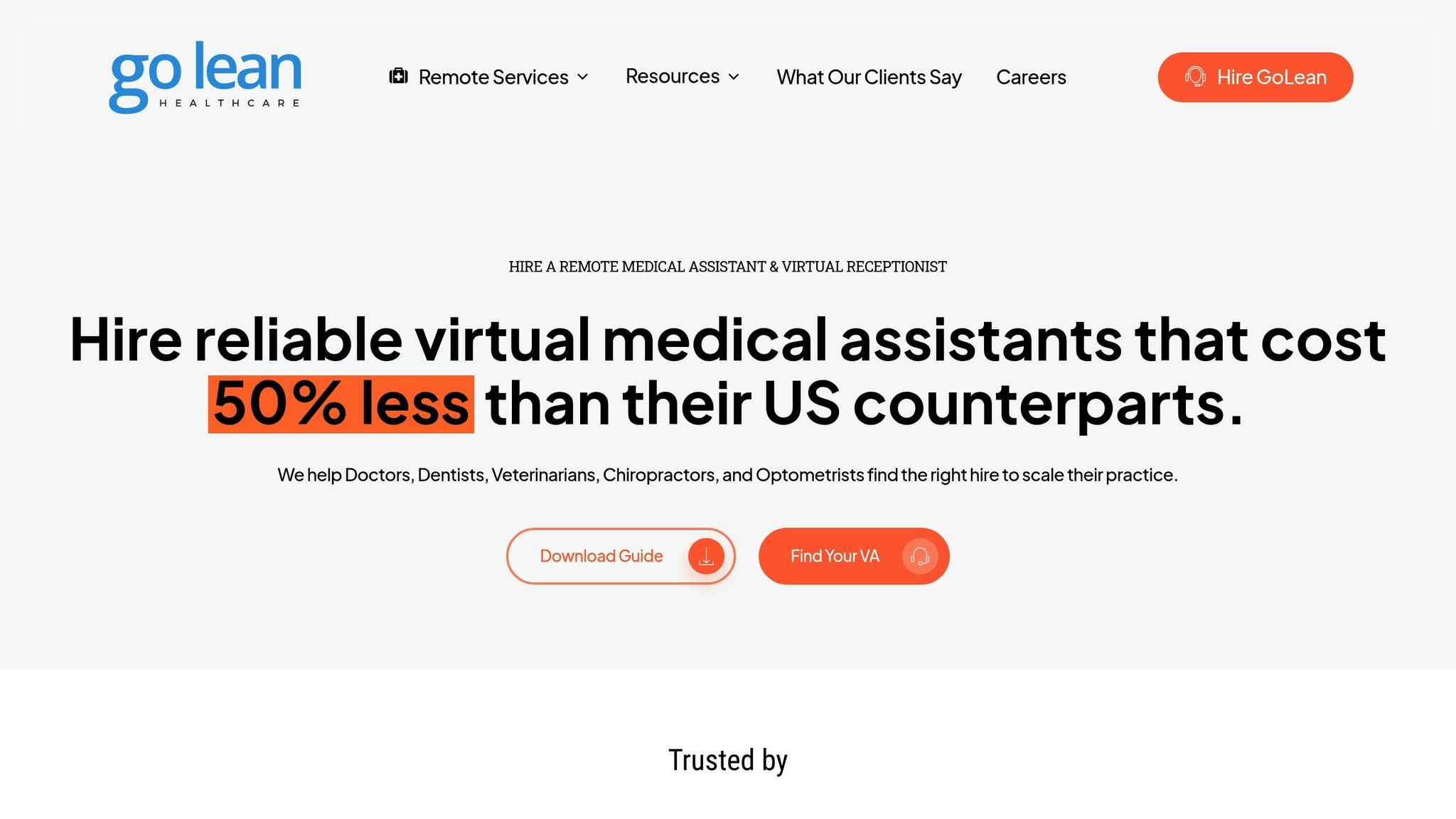Virtual Medical Assistants (VMAs) are transforming patient follow-up care by improving communication, reducing costs, and saving time for healthcare staff. Here’s what you need to know:
- What VMAs Do: They handle tasks like appointment scheduling, medication tracking, patient support, and EMR updates.
- Benefits: Faster responses, better patient engagement, multilingual support, and up to 50% cost savings compared to traditional staff.
- HIPAA Compliance: VMAs are trained in data protection, ensuring patient information is secure.
- Cost Comparison: VMAs cost $8.50/hour on average, compared to $15–25/hour for in-house staff, with no additional overhead.
VMAs streamline operations, allowing healthcare providers to focus more on patient care while maintaining efficiency and compliance. Ready to explore their impact? Let’s dive in.
Benefits of Hiring a Medical Virtual Assistant for Your Practice! 💻
Main Tasks of VMAs in Patient Follow-Ups
Virtual Medical Assistants (VMAs) play a key role in simplifying patient follow-ups while ensuring that care remains consistent and effective. Here’s what they typically handle:
Managing Appointments and Reminders
VMAs help keep patient schedules on track and communication smooth by:
- Organizing Schedules: Coordinating appointments between patients and healthcare providers to ensure calendars run smoothly.
- Sending Reminders: Delivering timely notifications about upcoming appointments and confirmations.
- Booking Follow-ups: Scheduling follow-up visits based on the treatment plan.
- Updating Records: Keeping Electronic Medical Records (EMRs) accurate and up to date.
This approach minimizes missed appointments and keeps follow-ups aligned with care plans. Another important area VMAs focus on is tracking medication adherence.
Tracking Medication Compliance
Sticking to prescribed medications is critical for successful treatment. VMAs assist by:
- Monitoring Schedules: Keeping track of prescribed medication timings and doses.
- Checking Compliance: Regularly reaching out to patients to confirm they are following their medication plans.
By doing this, VMAs help patients stay consistent with their treatments and ensure accurate compliance records.
Patient Support and Information
VMAs also provide ongoing support to patients by:
- Reinforcing Instructions: Explaining and reiterating post-visit care instructions.
- Answering Questions: Addressing common concerns or questions about care plans.
- Documenting Interactions: Recording all patient communications in EMR systems.
- Language Assistance: Offering bilingual support to cater to patients from diverse backgrounds.
This ensures patients feel supported and informed between visits. By handling these tasks, VMAs allow healthcare providers to concentrate more on direct patient care while maintaining strong, clear communication with patients.
Advantages of VMAs for Follow-Up Care
Virtual Medical Assistants (VMAs) not only simplify operations but also improve patient care and significantly cut costs.
Better Patient Communication
VMAs enable timely and consistent communication with patients, which can lead to better care results and increased satisfaction. Their ability to support multiple languages helps bridge communication gaps, especially with diverse patient groups.
Staff Time Management
By taking on administrative tasks, VMAs free up healthcare staff to concentrate on providing care.
"We’re running a busy practice and our GoLean VA has been an awesome addition to our team. She takes initiative, gets things done, and organizes things for us." [1]
Here’s how VMAs boost efficiency:
- Reduced Training Needs: They come ready to work, already trained in EMR systems and HIPAA compliance.
- Simplified Operations: Handle scheduling, insurance verification, and billing.
- Enhanced Team Focus: Allows staff to dedicate more time to specialized medical care.
"My experience with GoLean has been amazing…It had cut down hours of staff training for me, since he got to work right away." [1]
Reducing Operating Expenses
VMAs offer a more affordable alternative to traditional staff without sacrificing quality care:
| Aspect | Traditional Staff | Virtual Medical Assistant |
|---|---|---|
| Hourly Rate | $15–25/hour | $8.50/hour |
| Additional Costs | Benefits, overhead, training | None |
| Cost Savings | – | Up to 50% [1] |
| Work Hours | Fixed schedule | Flexible hours |
This cost-efficient solution allows practices to allocate savings toward improving patient care. VMAs’ expertise in HIPAA compliance and EMR systems ensures professional-level service at a lower cost.
sbb-itb-109dad4
HIPAA and Data Protection Standards
HIPAA Rules and Guidelines
When handling PHI, VMAs must follow strict HIPAA regulations. Some key practices include:
- Access Controls: Restricting PHI access to only authorized individuals
- Data Encryption: Protecting electronic communications that contain patient information
- Audit Trails: Keeping detailed records of all interactions with patient data
- Documentation: Storing and managing PHI in compliance with HIPAA standards
GoLean‘s Security Measures
GoLean enforces rigorous security protocols to ensure HIPAA compliance during follow-ups. Every VMA completes HIPAA certification before working with medical practices.
"My VA has become a valuable part of my business. Her sensitivity and care for patient data have earned my utmost trust." – Dr. Marissa Toussaint, Anise Medical [1]
The platform’s security measures include the following:
| Security Feature | Implementation |
|---|---|
| HIPAA Training | Mandatory certification for all VMAs |
| EMR Expertise | Comprehensive system training provided |
| BAA in Place | Direct agreement established with GoLean |
| Data Protection | Encrypted communication channels used |
Security Guidelines for Medical Practices
While GoLean secures its own processes, medical practices must also maintain strong internal protocols:
-
Verify HIPAA Compliance
Ensure your VMA provider guarantees that all staff are HIPAA certified."My experience with GoLean has been amazing… he already knows how to use the EMR and was already certified for customer service, HIPAA, and more." [1]
-
Establish Clear Access Protocols
Set specific rules for:- Levels of access to patient data
- Approved communication methods
- Proper documentation practices
-
Regular Security Audits
Conduct routine reviews of:- Access logs
- Communication records
- Data handling practices
- Overall compliance with security protocols
Setting Up VMAs for Follow-Up Success
Setting up Virtual Medical Assistants (VMAs) properly is key to ensuring smooth patient care and maximizing the benefits discussed earlier.
Connecting with EMR Systems
Integrating VMAs with your existing EMR system simplifies patient follow-ups and reduces setup time. GoLean’s VMAs come pre-trained on popular EMR platforms, making the process quicker and more efficient.
| Integration Step | Implementation Details |
|---|---|
| System Access | Provide secure EMR credentials with proper permissions |
| Documentation | Use standardized templates for follow-up notes |
| Workflow Setup | Automate tasks and notifications |
| Security Protocol | Enable two-factor authentication and access logging |
"It was like plug and play. My experience with GoLean has been amazing. I was worried about having to train my VA so much but to my surprise he already knows how to use the EMR and was already certified for customer service, HIPAA, and more. It had cut down hours of staff training for me, since he got to work right away." – Dr. Venkata Aligeti, Interventional Cardiologist [1]
Once the EMR connection is established, the next step is creating follow-up plans tailored to each patient.
Creating Patient-Specific Follow-Up Plans
Personalized follow-up protocols ensure better care and patient satisfaction. Here’s how to create them:
- Initial Assessment: Review medical history, communication preferences, language needs, and scheduling constraints.
- Communication Strategy: Decide on reminder frequency, follow-up scheduling, response times, and documentation requirements.
- Care Coordination: Focus on post-procedure monitoring, medication checks, test result communication, and referral management.
"Patients keep coming back because our VA has given our clinic an amazing first impression. I’m very confident in our VA and she has represented our practice in the best possible way!" – Dr. Vishal Bhalani, The Bhalani Urology Institute [1]
After personalizing follow-up plans, it’s essential to track how well your VMAs are performing.
Measuring VMA Performance
Regularly monitoring performance metrics ensures your VMAs are meeting care standards and improving patient outcomes.
| Metric Category | Key Measurements |
|---|---|
| Patient Engagement | Response rates, follow-up completion rates |
| Communication | Average response time, patient satisfaction scores |
| Documentation | EMR update accuracy, completion timeliness |
| Efficiency | Tasks completed daily, time saved for clinical staff |
Consistent performance reviews help identify areas for improvement, ensuring your follow-up processes remain efficient and effective.
Conclusion
Virtual Medical Assistants (VMAs) are changing the way patient follow-ups are handled by improving communication, increasing efficiency, and keeping patients engaged. Many healthcare practices have reported noticeable improvements in patient satisfaction and smoother day-to-day operations.
"I love how our GoLean VA just gets things done. Our patients get a prompt response from our clinic for any request for a schedule, she makes the calls, and I never have to worry about a patient getting overlooked again." – Dr. Saska Sookra Winslow, LifeStream Family Medicine [1].
Here’s how VMAs make a difference:
| Benefit Category | Impact |
|---|---|
| Cost Efficiency | Services starting at $8.50/hour [1] |
| Patient Care | Faster response times and better follow-ups |
| Staff Productivity | Less administrative workload |
| Compliance | HIPAA-trained with EMR expertise |
These results highlight how VMAs can improve both operations and patient care. Choosing a provider with strong training programs, HIPAA compliance, and healthcare expertise is key. When implemented effectively with clear guidelines, VMAs can elevate patient follow-up processes while maintaining top-notch security and professionalism.




